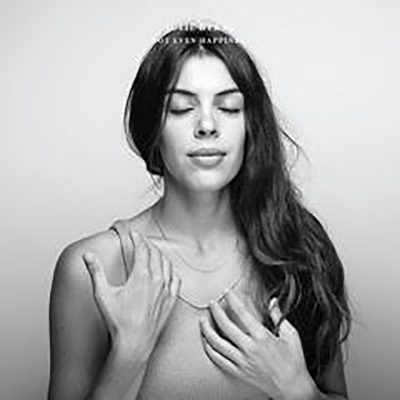
In a world full of music with generic lyrics confined to the rules of rhyme, folk singer-songwriters tend to dig a bit deeper and push the boundaries of songwriting.
Julie Byrne is no exception as she puts her own spin on folk music with “Not Even Happiness,” released Friday.
Ambient, honest and bold are all words that can be used to describe Byrne’s second album, recorded at her childhood home in upstate New York.
The album opens with Byrne’s skillful but delicate guitar playing that leads up to her earthy voice, reminiscent of Florence Welch and Birdy, taking on the first lines of “Follow My Voice.”
In this song, she urges listeners who are in pain to not give in to fear by tenderly singing personal advice, such as “I’ve been called heartbreaker/For doing justice to my own/I, too, been a fault-finder/But that life is broke.”
Byrne’s masterful grasp of the English language is prevalent in this line and throughout the entire album. As it continues, it is not hard to recognize that writing is her strongest suit.
Her words tend to resemble free-verse poetry more than lyrics as the rhythm changes from verse-to-verse and rhyming is not always present.
At times this is a disadvantage, making it hard for clear, memorable melodies to come through. This is not an album you would likely find stuck in your head for days at a time. However, it is quite obvious that Byrne is more focused on writing true to herself than writing hits.
This mindset serves her well as the album continues to the second track entitled “Sleepwalker.” The more upbeat tune with quick guitar plucking can’t help but elicit a subtle head bob before Byrne’s caramel-like voice enters to deliver a melody and lyrics with a much sadder tone than expected.
The album peaks in the middle, beginning with “Natural Blue,” which is perhaps the most conventionally written of the nine songs.
Following a simple verse-chorus pattern, this song follows melodic and rhythmic expectations, making it easier to listen to than most of the other songs.
The repeating lyric, “natural blue,” referencing the Colorado sky she witnessed on tour in 2014, according to multiple interviews, over the lilt of the guitar and added strings leave a lasting impression.
The placement of “Natural Blue” followed by “Interlude” and “Morning Dove” is extremely smart, as the two tracks sandwiching the short instrumental track are the strongest on the album and carry the first half into the second seamlessly.
The production on the album is minimal but purposeful, assuring that Byrne’s guitar and vocals come through strongest. Slight reverb is used to create an ambient feeling that makes for easy listening.
Nonmusical sounds are added to a few songs, such as subtle bird chirps in “All The Land Glimmered Beneath” and constant rolling ocean waves in “Sea As It Glides,” and it proves extremely effective each time.
The distinct lack of drums both hinders and helps “Not Even Happiness” find its footing as an album. Relying on Byrne’s guitar to determine the beat, “Melting Grid” might have done well at least a high hat, especially during the chorus.
Still, tracks like “Morning Dove” with more rhythmic picking prove that Byrne’s command over the guitar is as strong as her lyrical abilities.
While considered a folk artist, Byrne carves her own space in the genre by writing unexpected melodies and deeply poetic lyrics that could probably be read in silence, sans music.
“Not Even Happiness” is not an album for everyone, but it certainly warrants a listen from anyone interested in hearing something unique and personal.
























































































































